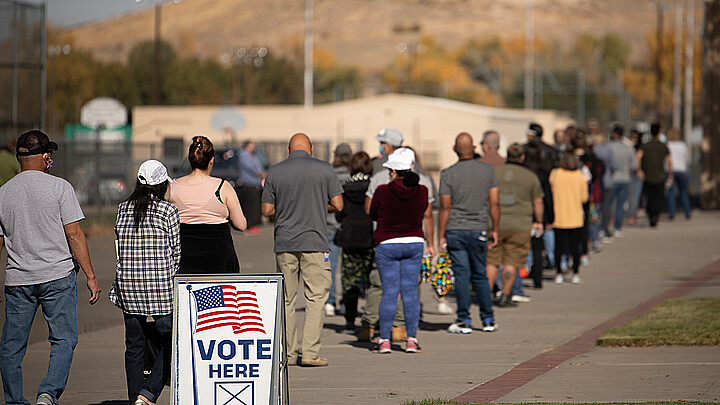Politics
Arizona Democrats propose 26 weeks of paid family leave
A handful of Democrats in the Arizona legislature are supporting a bill that would require employers to give workers up to 26 weeks of paid leave per year.
February 3, 2022 4:41pm
Updated: February 5, 2022 1:41pm
A handful of Democrats in the Arizona legislature are supporting a bill that would require employers to give workers up to 26 weeks of paid leave per year.
Fifteen Democrats in the Arizona legislature co-sponsored SB 1644 on Tuesday, February 1. The bill, introduced by Raquel Terán. D-Phoenix, would enact paid family and medical leave in Arizona.
If passed, the bill would allow for up to 26 weeks of paid leave in cases of childbirth, caring for a relative, caring for a military family member, and for victims of domestic violence, among other reasons.
“New parents are having to return to work immediately after the addition of a new family member,” Terán said in a press conference on Wednesday. “Our small businesses are shutting their doors because they cannot compete with large corporations who have the resources to provide paid leave on their own. And for the past three years, people all over the state have gone to work while missing final, precious moments with loved ones they’ve lost to the COVID-19 pandemic.”
The minimum benefit paid out for an individual would generally be $100 per week while the maximum benefit would be $1,000 per week; if the worker earned under $100 per week, they would receive their full wage.
Lower-income workers who earn less than half of the state’s average weekly wage would receive 90% of their wage as a benefit. Those who earn more than that would receive 90% of half of the state’s weekly wage plus 50% of the difference between their average weekly wage and half of the state’s average weekly wage.
Chad Heinrich, Arizona director of the National Federation of Independent Business, said the bill would hurt small businesses.
“The bill seeks to have payroll contributions ‘paid by employers and employees in the ratio of one to one,’” he said. “When considering what appears to be only a one-year ramp up period leading to the year when benefits would be payable, the contributions required could conceivably force small businesses to close their doors. At the same time, for those businesses with the financial wherewithal to remain open, their employees could be placed in serious financial jeopardy through reduced net earnings. This would be a disaster.”
If enacted, the paid family and medical leave program would go into effect in 2025.










